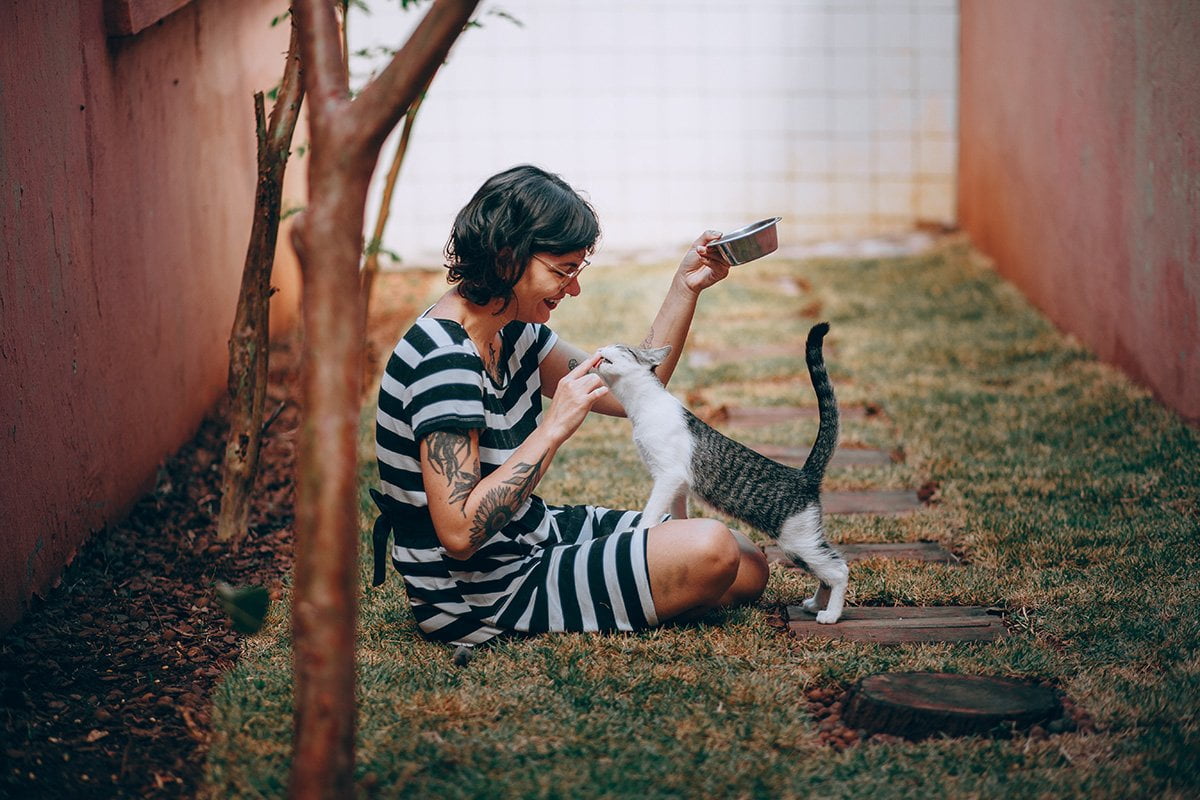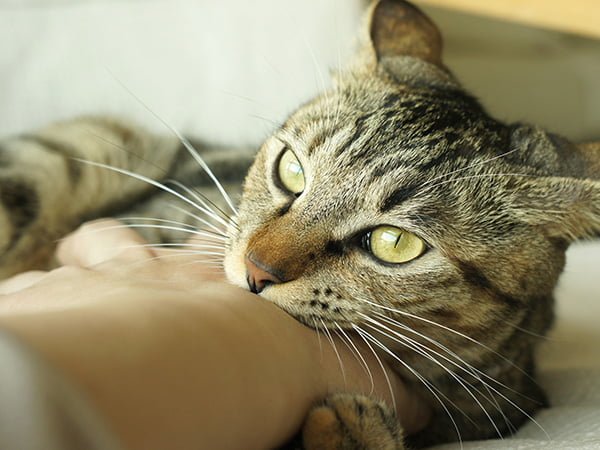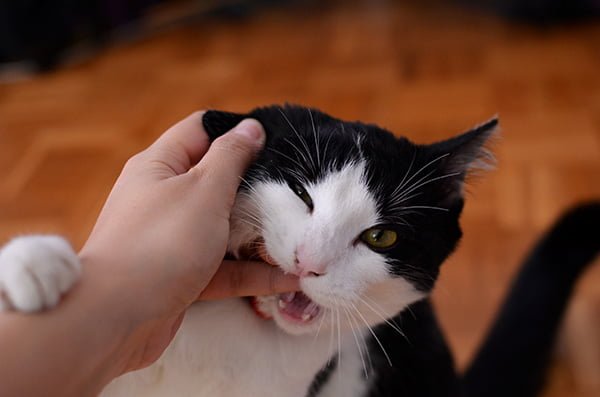Cats are fascinating creatures known for their independence and mysterious ways, and cats can have a deep affection for their human parents. One of the ways cats show their affection and love is through licking. Whether you are a new cat parent or have a cat that starts licking you, many cat owners wonder, why does my cat lick me? What does it mean when my cat licks me? Should I let my cat lick me?
Cats lick people for various reasons, including grooming, bonding, marking their territory, seeking attention, soothing themselves, or it could be a sign of something more serious. Understanding why your cat is licking can help you better understand their behavior and strengthen your bond with your cat. Whether they're licking you as a sign of love, seeking attention, or just trying to keep you clean, this is a behavior every cat parent should pay attention to. Below, we will explain everything cat owners need to know about cat licking.
7 Reasons Why Your Cat Licks
1. Giving You A Grooming Session
Cats lick as a way of grooming themselves and you. Cats have rough tongues, and as the cat's tongue sweeps across their coat, it helps them to remove loose hair and dirt from their fur. When cats lick you, it's a behavior that they are trying to clean you up just as they would to themselves or another pet in the house.

2. Showing Affection
Cat licking is a behavior for cats to show affection and bond with their owners. Licking releases endorphins in a cat's brain, which can be a pleasurable experience for you and your cat. This bonding behavior is similar to how dogs show affection through licking, and it's just one of the many ways cats express their love.
3. Marking Their Territory
Cats may lick you to mark their territory, including cat toys, other animals, and you. Cats have scent glands in their cheeks, and when they lick you, they leave their scent on you. Licking you is a positive sign that cats are marking you as theirs and claiming you as part of their territory. Just like mother cats licking their kittens to create a familiar scent and establish that the kittens are hers. And if you have more than one cat or have other pets at home, your cat may also lick them. If your cat licks other cats or pets, it's your cat's way of creating a social bond and adding them to its social group.

Source: Flickr
4. Seeking Attention
Some cats lick as a way of seeking attention. If your cat licks you and you respond by petting or playing with them, they'll learn that this behavior gets them what they want. Over time, they may continue to lick you as a way of getting your attention and affection.
5. Coping with anxiety or stress
Your cat may be licking you as a way of soothing themselves. Cats have a strong instinctual drive to groom when feeling anxious or stressed and may lick more frequently. If your cat is licking you excessively, it may be a sign that they're feeling overwhelmed or stressed, and it's important to take steps to help them feel more relaxed. In more severe cases, some cats groom themselves until their skin becomes raw or creates bold spots. If this is the case, be sure to talk to your veterinarian.
To help create a calm, safe, and relaxed environment, cat parents need to provide their cats with plenty of vertical spaces, such as cat trees, perches, and other hiding places.
6. Health Issues
In some cases, excessive cat licking and grooming can be a sign of underlying health problems. If your cat is licking you or themselves excessively, it's important to talk to your vet to rule out any underlying medical issues. For example, stress, skin conditions, or digestive problems can cause excessive licking.
7. You Are Tasty
It is possible that your feline friend may be licking you because they've stumbled upon a tasty treat on your skin. You could have come into contact with something that's left a savory residue. Your cat's keen sense of taste has detected the residue, and they can't resist a little lick. If you've been active or are feeling warm, your sweat may have a salty taste, which your cat is naturally drawn to. Regardless of the reason, your cat's licking is a playful and affectionate gesture that you can enjoy and appreciate.

Source: Pexels
FAQ
Should I Let My Cat Lick Me?
Whether or not you should let your cat lick you is ultimately a personal decision. However, there are a few things to consider before making your choice.
On the one hand, allowing your cat to lick you can signify affection and bonding between you and your furry friend. By allowing your cat to lick you, you're strengthening your bond and creating a stronger relationship with your cat.
However, it's important to be mindful of your cat's health history and lifestyle. While most cats have clean tongues, some may have bacteria or parasites that can be harmful to humans. If you have a compromised immune system or an open wound, it's best to avoid letting your cat lick you.
How Do I Get My Cat To Stop Licking Me?
If you don't wish your cat to lick you, it's important not to push them away when your cat starts licking you. Your cat won't understand this behavior and will likely become stressed. However, you can redirect your cat's attention to something else, like cat toys, blankets, stuffed animals, or a scratching post. To deter your cat from licking, you can also apply bitter-taste food like lemon juice or apple cider on your skin.
Why Does My Cat Lick Me And Then Bite Me?
Cat licking behavior is often a sign of affection, and biting is usually a cause of overstimulation or playfulness. Many cat owners refer to this biting behavior as "love bites." If your cat does give you love bites, it's important to teach them to control their bite pressure and not be hard enough to break the skin.
To stop the love bite behavior, you can do a few things. You can redirect your cat with interactive toys instead of your hand. Say "no" or "stop" to discourage the behavior when it occurs. Watch your cat's body language and look for signs of overstimulation, such as twitching tails or dilated pupils. If your cat has these signs, remove yourself from the situation and give your cat a break.
